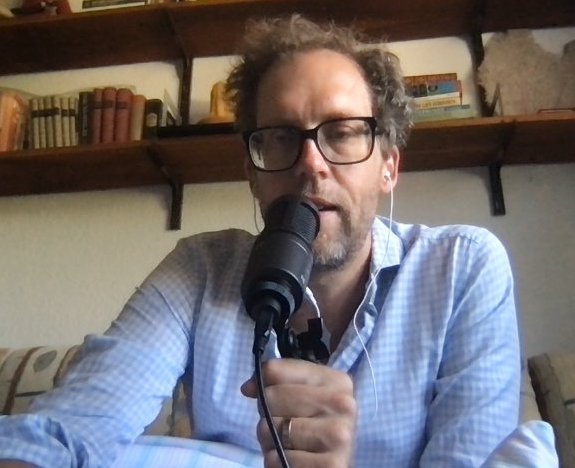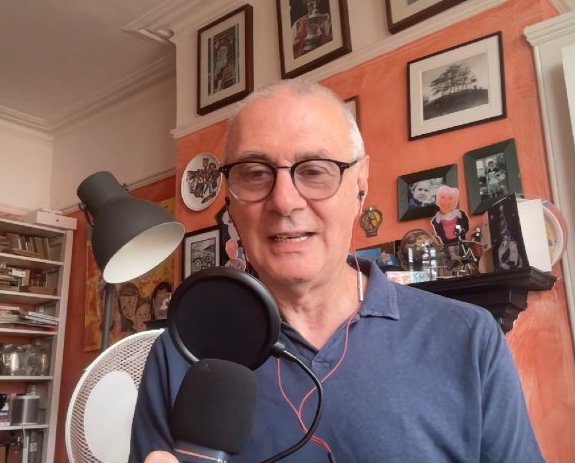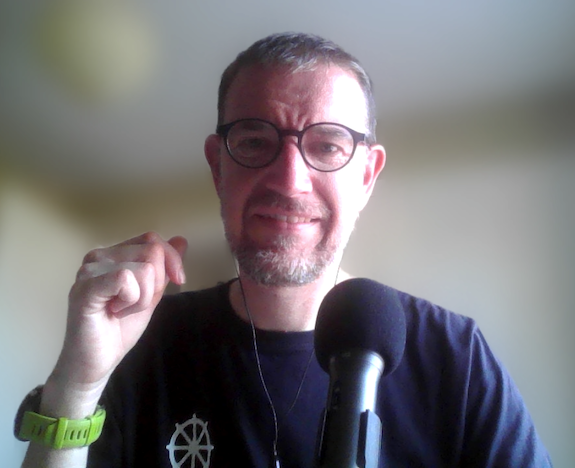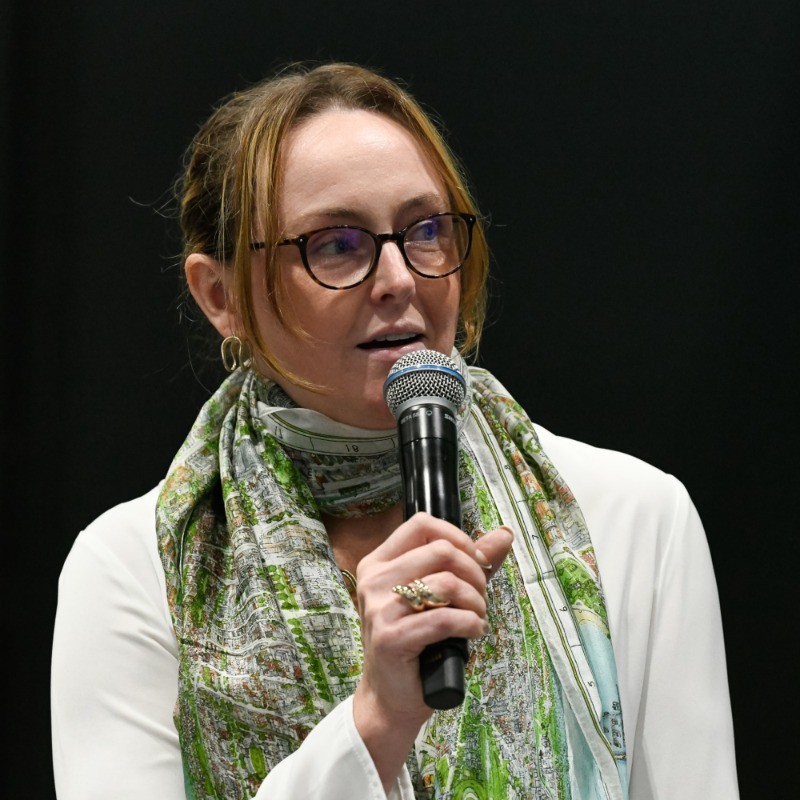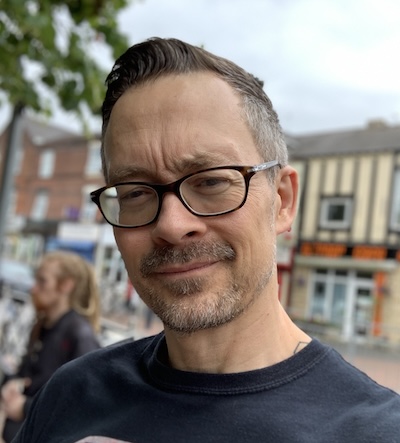Subscribe
Steven talks with long time London OpenStreetMapper Steve Chilton.
Relevant links:
About the podcast
On the Geomob podcast every week we discuss themes from the geo industry, interview Geomob speakers, and provide regular updates about our own projects.
Popular podcast topics:
The Geomob podcast is hosted by:
Autogenerated Transcript:
Ed 00:01 Welcome to the geomob podcast where we discussed you innovation in any and all forms, be it for fun or profit.
Steven F. 00:11 Hi everyone. Welcome to episode five of the -inaudible- podcast. I'm here today with my good friend, Steve Chilton. Steve and I could be two of the oldest members of the geomob community, but hopefully with age comes at least a little bit of wisdom and hope. Steve is going to share some of that wisdom with us this afternoon. So by training Steve's a cartographer having originally studied at Oxford Brookes university. He's a fellow of the staff and educational development association and a Middlesex university teaching fellow having recently retired from Middlesex university. His responsibilities there included curriculum development and how educational developments and methodologies can be applied to enhance the student learning experience. Gosh, Steve, that's a long way off from cartography, isn't it?
Steve C. 01:09 It is. It is.
Steven F. 01:11 Steve was also chair of the society of cartographers for many years and he's working on a coauthored book on the first ordinance survey, six inch maps areas, and we'll hear a little bit more about that later in the talk from Steve. He's big passion apart from maps is mountain walking, coaching and running. And he's now turned that into a very successful second career with three books published to date and a fourth one out in July. Steve, that's quite a selection of interest. How on earth does a cartographer end up being an expert in e-learning? Did you ever use your cartography skills in your day job?
Steve C. 01:54 Well, I had a long career at Middlesex unit. I was employed as a cartographer initially taking maps for teaching and research for the geography academics and as the Korean moved on, so the job changed. I became involved in graphic design, a learning environment, and became eventually an academic developer advising the academics on new developments, basically in touch with technology as it changed using things like the virtual learning environment. Learning can such things as that. So it's a long career progression.
Steven F. 02:34 Wow. Um, I guess it sort of mirrors my mind. The big shifts that I had in my career. Mine was sort of the other way round because I started in building materials, manufacturing glass and mirrors, and ended up running the digital mapping business. So anyway, let's, let's get to the meter thing. The bit that people really know you for I think is your relationship open street map. You've been involved with the project since the very early days. How did you get started?
Steve C. 03:05 Well, even at my job chase, I was always involved in cartography and freelancing or whatever and I was organizing a conference in 2000 invited Steve, the sort of originator of the industry in that project to come and talk about it. At that conference, uh, I listened to him, I said, uh, this is not going to go anywhere. Nothing will happen. This is far too ambitious. And then a little while later I started getting more interested in being involved. And since then I've been editing, contributing, talking about conferences, basically spreading the word because I have now a believer.
Steven F. 03:44 Yeah, I think it gets us all like that, doesn't it? You start off the idea of a crowdsourced map and you think, nah, that can't work. And then gradually you realize that it can work. So what's your involvement now with, with open street map?
Steve C. 04:00 Yeah. I'm retired. I live in North London and I kind of monitor developments in the borough that I live in, which is working my way through mapping in Vera and I also try and do stuff when I don't visit other places. And really it's more as an advocate that I'm really involved now. So I'll ask him people why are they not contributing and how's they could and benefit by adding stuff to the ism database.
Steven F. 04:25 That prompts a question from me, which is it's not easy to contribute to get started contributing to open street map. What would you say to people who do like to get started but haven't yet made the commitment and committed their first few buildings or streets or addresses?
Steve C. 04:46 Oh really? It's a question of looking at someone you know and thinking, okay, is this complete other things that I could add and as always things that are necessary to be added, in my opinion, misspelled, just placed on name. Then it really getting to learn to use the simplest editor isn't too much of a task and I just encourage people to have a look at somewhere that they know well and just add those things that they can on the fly and be part of the project.
Steven F. 05:12 That's exactly how I got started. I started, I found a couple of alleyways around the corner to where we lived and I added them to the map and then I started putting house numbers on buildings and then I got a little bit more adventurous and I added a few buildings. And you're right, you know, once you get started in your local area, it's easy to find stuff to do and um, and it's quite easy to get involved. So there are lots of people who, you know, apart from individuals, there are companies now who are very involved in open street map and they offer different cartographic representation based on open street map. What do you think about all the different offers that are out
Steve C. 05:57 based on open street map? I quite like the fact that it's had penetration on the project and move things on. So that's a lot of them. To me the big take is that it's a huge database. So seeing that data use, whether it's in the original project math subsidiary things and other projects by other companies you've seen the liberal feed map standard style, you just need a kind of a buzz cause I was heavily involved in the designing of that and it just gives me a story. I see it.
Steven F. 06:28 Yeah of course, lots of people don't realize how much work went in in those early days to creating the style of open street map is now sort of just generally accepted as the way that you style web maps. You know, I think even Google has learned from the styling of open street map and a lot of that work
Steve C. 06:49 you were coding. It was, and I had to learn quite quickly what this XML stuff was and how things were betrayed in layers in the map Nick tool that was used at the time. So yes, there was a lot of them, but it was fascinating to bear to just do something, change it, reload it and see it immediately effective.
Steven F. 07:11 It just occurred to me, Steve, whilst we're talking, but for many of the people who have seen open street map or who even use open street map as a base map layer in their applications, they won't fully understand that distinction between the rendering of open street map and the database. Do you think you could just for those those people explain what that difference is?
Steve C. 07:38 Yeah, really there was an argument amongst many people in the project, every single thing in the database should appear in the map and I had to sort of explain the reasons why that wasn't possible and so it's a process of taking the data and deciding at what level of display. It shouldn't be possible to see that you can't display hubs and all scales and they have to come in at a particular stage. So the selective use of that data to meaningful map such that there's not cluttered, not distortion, does not overlay of different items that confuse the eye and making it a meaningful thing. Basically using a set of rule based decisions behind the start sheet, the producer side effects that explains it.
Steven F. 08:27 And in fact there are some features that dedicated users will collect, which I'll run lightly to appear in most of the common renderings of open street map. You know, when people were collecting every individual tree for example, you're not normally going to have a rendering, which shows all of the individual trees.
Steve C. 08:51 Absolutely. Yeah.
Steven F. 08:52 And I think it's important for all of us that we remember, it's a database, right? We, we view it as a map. That's the way we view it. But the key thing is that this is a database, not a, not just a digital map.
Steve C. 09:07 There's another aspect of the database. It's also a database that's available to be used by people in whatever way they see it. So someone wants to map something like, I don't know, someone was mapping the location of Griffin's one time. If they want to produce a -inaudible- map, they've got the data there.
Steven F. 09:26 So in terms of the various cartographic products that people may have seen at some stage, what are your favorites and is that one that you hate?
Steve C. 09:38 The one that I hate is no longer actually available. The original render too much basically on any single mat. So that's my one I didn't like. In terms of ones I like, I do like the way that Andy Allen social cycle map takes a data and uses it to show the things that are more interesting to cyclists. So he's done a brilliant job in that and other aspects of display that he's developed as well. So that's just one individual person, particularly some of the stuff that the companies have done. So work the Mapbox is really interesting that their contribution to the project, but also,
Steven F. 10:21 yeah, and I think it's interesting that, I mean Mapbox has built up into a very substantial company. It's one of the stellar successes or the whole era of Malden digital geography. And yet they contributed so much back to open street map, you know, like their style editing tools, which make it relative. I mean, it's still not simple, but it's a hell of a lot simpler than it was when you had to write everything in XML. So I think, you know, there's a call out, a quick clap for Mapbox. I agree with you. What about your favorite moments in your time working with open street map?
Steve C. 11:02 I'll give you a couple of months. Quite early on. So at one stage I was the kind of OSM versus Google game going on. There was a feeling that, uh, you know, we can do this stuff better than Google can in many ways. And there was an interesting situation at Rose at the annual conference, the state of the map conference in Limerick in 2008, which was well attended and, and Parsons, who was CTO at the time was a, seem to be sitting on the floor and one of the second get a seat in the, uh, in the auditorium. But the fantastic thing was that here's an individual that's very keen to support community. So that's one particular memory. And the other ones, I've got the chance to go to Antiga to map some of the Island as a real to the pledge bank draw that was made in the open street community, which kind of smell for me to better. That was brilliant. A better person back in where I may not have gone.
Steven F. 12:04 Wow. That is a lovely, lovely opportunity. I would have come with you if you didn't
Steve C. 12:11 think, if I felt misunderstood. The culture that I was going into and so on that Island does it were not many street names. No, we're not many house names and I just thought I could go out and map out yeah. For eight or nine hours a day and produce a massive great in that data. It's so damn hot that I couldn't go out.
Steven F. 12:34 Well. Yeah. I guess that the guys who work for map action are constantly finding that they're going into environments that they're not prepared for and that they have to adapt to pretty quickly as well. Is the word, isn't it? Back at the beginning and I'm not quite sure that I go back to 2004 but certainly from sort of 2006 2007 I've been involved with the OSM community but not as closely as you have and over the last few years as I've got more involved with the osto software community, although I'm still a paid up member of the open street map foundation, I'm not as close to it as I used to be, but it does seem to me that dot log on the mailing list pretty tough pretty quickly on that. We'll discourage some, perhaps even many from getting involved in the running of the foundation and all the other activities that need to go on. Apart from just doing the mapping, do you have any thoughts on why that's the case and how it might've changed?
Steve C. 13:48 Yeah, I spent far too much time on the floor on the mailing list and it was ever the say, but it's because passionate free thinking people are doing their thing and they've got opinions. It can get very intense because of that thing. And at one point I was labeled by someone, a benign style dictator in the standard that I was trying to work, but I took that as a sign that it was that description, but it wasn't, there was a lot of rank over various things and it's basically because it's an open community of volunteers who've got their own way of tenting.
Steven F. 14:36 Yeah. And I think it's helped by the fact that it's a global community and yet most of our dialogue is in English. So a lot of our community members are communicating in a second language and I'm sure that's -inaudible-.
Steve C. 14:55 Well it's always been a hero center and a lot of the decisions about naming things and various sorts of things with made by people whose language is English. So that has not been an easy path. Some people too, except they were the people doing this stuff at the time.
Steven F. 15:11 Yeah. And it's a complex thing. I gave a talk a while ago about boundary disputes and naming disputes and stuff like that. And the open street map community has actually got an excellent and robust process for doing that, but they've arrived at getting those processes and getting everybody to agree to those processes. Is time consuming and on occasions quite challenging. I imagine
Steve C. 15:40 it is. I haven't been particularly involved. I've seen the stuff, you know the Cyprus naming of places and other things like that and it's good to some kind of resolution can be made as to how things pan out. A lot of credit to the people who work on the parts of the project that deal with those things. I give them a lot of credit except thanks to them getting a better
Steven F. 16:09 and I think for people who are outside of the project, it's difficult for them to realize how much work is put into this project. Apart from adding geographical data. You know there are a million people adding admin map data, but many of them of course only occasionally, but there are a core of people who are running the servers who are running the licensing working group. This group, that group, there's a lot of work goes on behind the scenes to keep this project running and you one should acknowledge the efforts of all of those people. I think perhaps more than happens at the moment.
Steve C. 16:49 Absolutely. So and uh, people probably don't realize that things like technological developments are done to a large extent. A very small number of people.
Steven F. 17:05 Yeah. Oh, I see him. He's 15 years old now. I think maybe 16 coming up to 16 years. I am not sure, but what do you think the stakes of the map will be in another 10 years time when it gets to his 25th birthday?
Steve C. 17:18 Well, sadly I think the data will still be Patty in parts of the globe. I mean Steve Kurtz made a massive statement about full coverage by the number of years was unrealistic expectation. So it's still skewed towards developed countries, whereas the data in some of the other parts of the world and lots of stores, I think those could be an issue about full coverage. Think of it that way on thing. I'm hoping shortly it will be the availability of vector mapping options data, how that pans out.
Steven F. 17:53 Well you mean things like back to tiles?
Steve C. 17:56 Yes, indeed. Yeah.
Steven F. 17:57 I think it's interesting, you know you're talking about coverage and coverage is was always a question that people ask when they're trying to assess. Is open street map good enough? When will it be good enough? Good enough for what? But back in 2018 we had FOSS4G in Dar ES Salaam in Tanzania and it was held in conjunction with the humanitarian open street map teams annual summit and so they brought big number, you know, I mean well over a hundred Africa mappers. Okay. To possibly G to attend the hot summit. What you can see is that their efforts have actually made a big difference to improving the coverage and on the African continent.
Steve C. 18:44 Well that is fantastic. You see that in other areas. You also saw it in terms of some of the disasters people stepped in to try and help in places like that. So yeah, there's some brilliant things. That's some brilliant availability of data for people to use for political and emergency purposes.
Steven F. 19:04 Yup. Still looking at this 25th birthday of open street map, which isn't that far in the future, what do you think the state of the community or be?
Steve C. 19:12 I'm hoping that it's still community and not a business, so that would be freedom to be part of that community without being tied to any particular strands of external influence. So there's, I think the strengths as a project, it's the community account really never been one of predicting things a lot going to go very far in that direction. But I do think that it will still be a community and it will be an important part of the way the project rolls.
Steven F. 19:44 Do you think they'll still be squabbling?
Steve C. 19:46 Yes, I do. Not that there's coupling is still a better thing in place. Hello? Even though I would still say there's -inaudible- data, I still think the project is very viable for use for many purposes.
Steven F. 20:04 Absolutely. And the very idea that there would be a crowdsourced map of the world, but we'll have street level detail it relatively small cities in less developed countries all over the world when there is no other map data available is quite remarkable. We should recognize that this is an incredible achievement and one that everybody who's contributed, whether it is a single street or a single building can feel a little bit of personal pride in. I know I do. Every time I look at open street map we're going to need stop to draw this to a close. Steve, before, before we do, can you tell our listeners a little bit about your new career and is there a connection between your love of cartography and your love of running?
Steve C. 21:02 Well at a stretch there is. I've also been involved in cartography as a career and as an outside interest that leads to map reading. It leads to take part in running. I used to run up and down the mountains as a front runner and so I've ended up writing about on the up and down mountains. And so I've written three books on fell running, which is one of my passions as you said earlier on. Then I've just turned to that in my later life. I don't know why it just happened. My wife says you're not making enough money if I can use my passion for running and I'm going to stick with it. So that's kind of where I come from.
Steven F. 21:39 Okay, so when we do the show notes, I'll put a link to your, your webpage or your Amazon page, wherever it is so that people who are interested in having a look at your running books can find them there and maybe even buy a copy. So yeah, I mentioned right at the beginning that you a writing up well on the first ordinance survey, six inch maps areas. Maybe you could tell us a bit about that, but you might need to start by explaining what a six inch maps here is is for some of our readers who aren't quite as old as you and me.
Steve C. 22:19 Well the six inch map series was actually the first large scale series to cover the whole of the UK. Six inch scale is one to 10,560 so it's very detailed. It shows a lot of things that you wouldn't see on a standard survey under 50,000 map that you might planning walk or journey. And it was developed in the mid 19th century, took a long time to happen and was done in the old fashioned way of triangulation and surveying in the field for the inclusive fascinating detail sort of mirrors the development of the rail system. So you can see over the years the landscape has changed due to technological and cultural change and it's just a fascinating period that my colleague, professor shepherd and I have been researching for many years and we feel that we've got a story to tell about that development of the map. It's such an important resource people should be able to use and refer to when they want large scale information about the UK
Steven F. 23:25 from the 19th century.
Steve C. 23:26 Well from that area, yeah,
Steven F. 23:28 I can still, you can't buy those maps anymore. Obviously they've been updated, but can you still get digital scans at those early maps?
Steve C. 23:39 Yeah, digital scans are available and the maps themselves from that era are available in the national library like the British library of Scotland does that. She got them all digitized online, so yeah, but it's part of, it's now part of the full on survey database that can be output at that scale database.
Steven F. 24:03 I'm looking forward to that book coming out eventually because those of us who grew up with paper maps, this is the origin of all the paper maps that we used as boy Scouts and as hikers and Ramblers isn't it?
Steve C. 24:18 It is indeed. In fact that the data as it was collected for that series is then fills down generalized down to the other maps people may be more familiar with, so it's the basis in the same way as the map databases. The basis of that project map, I would argue it's the basis that happens.
Steven F. 24:38 Right. So my closing question for you, Steve, which is going to be as standard closing question to all the people who've spoken at GM OPA, what are your favorite geomob moments, events that you can recall?
Steve C. 24:53 Cool. Well the, the whole thing about Giamalva, it's so good anyway because it allows people a platform to talk about geo development, shall we say. Just even if it's working. Progress hasn't gone very far. It's a fantastic place to just talk about things like personal moments. Oh, have to be about myself. But I so enjoyed sharing the stage with 10 fields that -inaudible- wants to share some of their favorite maps. I think it was in September, 2018 we enjoy that. But also just the fact of winning the splash match prize for my talk on my work on the open street map project in June of last year. Yeah. It was a pleasure to share. So the development that I've done and the mapping I've done and to be seen to be doing quite a reasonable job but never been recognized on that occasion just gave me a lot of pleasure.
Steven F. 25:46 Well I was there on that day. In fact, I was there on both of the two days that you remember and it certainly was a pleasure to listen to you and to vote for you for this last match price. Before we wrap up, people want to get in touch with you to find out about your books, to find out about open street map and to talk to you about running. How can they get in contact with you?
Steve C. 26:10 Very simple way, ways. Twitter and my Twitter handle is Steve pate, but it's spelled wrong. And when I registered I actually spot my name rolls and my Twitter handle is S T E V. humor late
Steven F. 26:30 quite a long time now. And I've always wondered why your Twitter handle was S T E V a. Now I know it's just a spelling mistake.
Steve C. 26:42 It
Steven F. 26:44 and I've also got, sorry, go on. Email and email is Steve, dr Chilton, C H. I, L T. O. N. new yonder. Okay. Well I have a contact page on my blog, which is, it's a Hill one word. It's a Hill. Dot. WordPress. Great. I, we'll put those links in the show notes when we publish the recording.
Steve C. 27:12 That's brilliant.
Steven F. 27:13 Absolute pleasure to talk to you this afternoon. It's been great fun. Thank you very, very much for your time and I'll look forward to catching up with you soon.
Steve C. 27:24 Okay. Thanks for having us. I appreciate it. I've enjoyed doing it myself.
Ed 27:30 Thanks everyone for joining us today and listening to the geomob podcast. Hopefully you've enjoyed the discussion. Please don't hesitate if you have any feedback for us or any suggestions for topics that we should cover in the future. You can get the show notes over on the website, which is at -inaudible- dot com while you're there, if you're not yet on the mailing list, please do get on the mailing list where we once a month send out an email announcing future events, summarizing past events and just generally sharing events that you may find of interest. You can also of course, follow us on Twitter where our handle is geomob. You can follow Steven at Steven Feldman. You can follow me fry Fogel, you can check out Mappery at -inaudible- dot org and of course, if you need any geocoding, please check out my service, which is open cage data.com we look forward to you joining us again, and if you try episode Oh and of course seeing you at a future GM up event. Hope to see you there soon. Bye.

